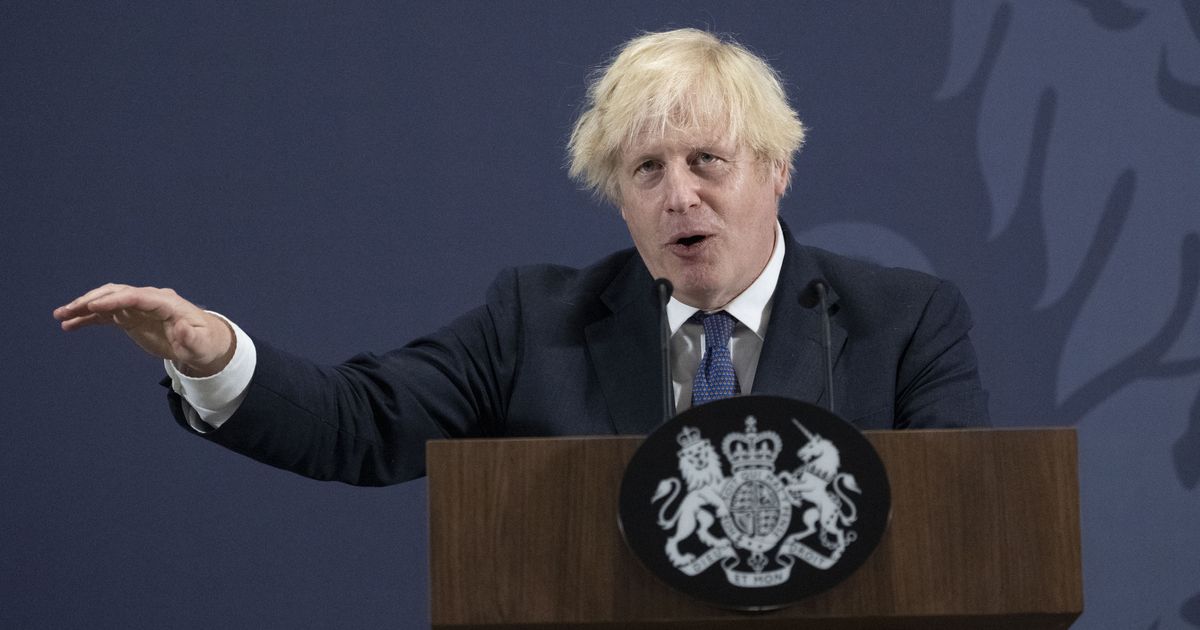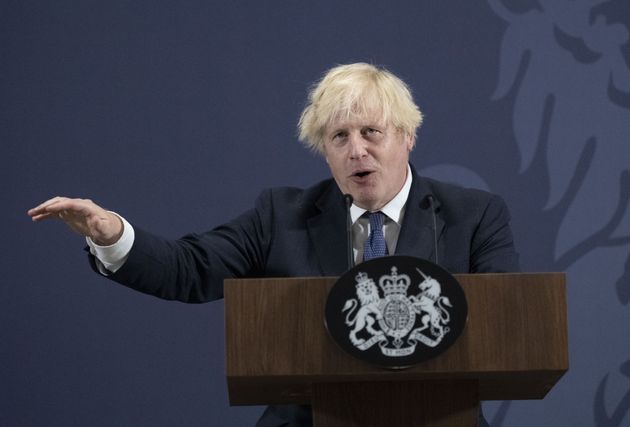
Last year, a former minister confided to me that when he road-tested Boris Johnson’s “levelling up” catchphrase among his constituents, one voter replied with the immortal words: “You mean the potholes?”
So perhaps it was fitting that when the PM tried to explain the concept, his speech was as rutted and cratered as a Mexican ringroad. Full of policy holes and bumpy, meandering stretches, Johnson’s address to the bewildered audience in Coventry was a journey without a destination.
Of course, one very simple interpretation of levelling up is the idea of spending more cash in areas outside London. One of Dominic Cummings’ main achievements in his time in office was persuading the Treasury to rewrite the so-called ‘green book rules’ to allow investment in less affluent places.
The old idea that “investment should always follow success” was indeed ridiculed by the PM as he vowed to tackle towns and cities in decline. But the most notable Cummings influence on display on Thursday was the sheer stream-of-consciousness verbiage deployed. At 4,272 words, the speech made a Cummings blog look the acme of brevity.
In a genuine service to the nation, the Downing Street website published what it described as the “transcript of the speech, exactly as it was delivered”. Listening to it was one thing, seeing it written down in black and white confirmed its long and winding mode. One sentence lasted a full 210 words, and felt longer than the sentence hardened criminals get for armed robbery.
The word blizzard, which whooshed or lulled according to the PM’s mood, seemed designed to bury the fact that there was not a single new definition of what is meant to be the defining policy of his premiership. As for hard cash, the only fresh money was £50m so that “ultimately” (key word that) no one will be more than 15 minutes from a football pitch.
Former No.10 adviser Tim Montgomerie put his finger on the problem earlier this year when he revealed that post-election conversations about levelling up were “vacuous” because no one could “convert a soundbite that tested well in focus groups into something real”. When pressed on Thursday, Johnson admitted he so far only had “the skeleton of what to do”. Dem bones, dem bones, dem dry bones, indeed.
And whenever Johnson has little to say, the gags are always a giveaway. One section of the speech about Heinz investing in Wigan seemed exclusively inserted to tee up a joke about “the magic sauce – the ketchup of catch-up”. Yet it was a punchline in place of a policy, because that key ingredient of levelling up turned out to be “leadership”.
And in true Johnsonian fashion, the key test wasn’t of his own leadership but that of local politicians. They would determine the success of his flagship idea and it was their job to really define levelling up through their actions, he suggested. Reheating old plans to give county councils “metro mayors” like those in big cities, it was devolution but not as you know it.
Featuring another shot in the culture war (“loony left” councils would not get more powers), it felt like an olive branch to southern Tories worried about planning reforms, with the promise of becoming shire versions of Andy Burnham or Sadiq Khan.
He didn’t sound like he was backing down on housing zones, but instead telling the Blue Wall “if you can’t beat em, join em”. The catch was that No.10 would still hold all the cards and decide what made a deserving case.
The fundamental problem with all of the mayoral innovations to date has been their dependence on London for funds, and a very limited ability to raise funds themselves. That was underlined when Johnson joked that even Tory mayor for the West Midlands, Andy Street, couldn’t “extort massive cheques” from the Treasury at will.
We were promised a White Paper on levelling up later this year, but it appeared that the PM wants local politicians to really do the heavy lifting. Just as he has outsourced public health policy on Covid through the mantra of “personal responsibility”, he felt like he was devolving outside government the future blame for any fudge or failure of levelling up.
He may prove the doubters wrong with some detailed, coherent and costed plans later this year. But if progress is slow and unmeasurable, it is likely to be someone else’s fault.
And the way the PM disowned any role in Conservative austerity that some feel has really crippled the regions over the past decade, the way he talked of his “outrage” that life expectancy was inexplicably higher in Hampshire than in Blackpool, suggests someone determined to say “it wasn’t me”.




